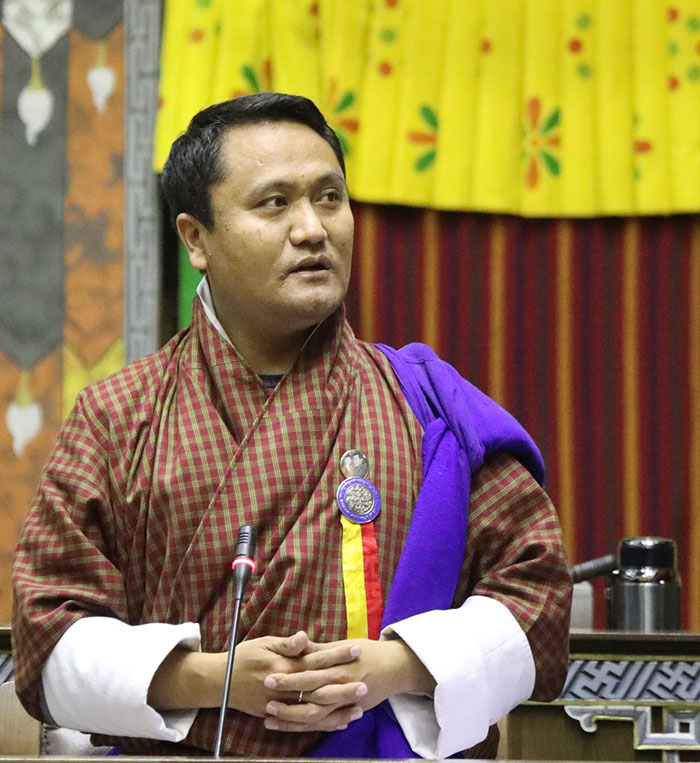Choki Wangmo
The National Assembly (NA), through a show of hands, endorsed the proposal to form a joint committee to discuss the Mines and Mineral Bill of Bhutan on December 13.
The decision came after both the National Council (NC) and NA couldn’t agree on the amendments including the principle and application of the Bill.

Chairperson of economic and finance committee, Kinley Wangchuk
Chairperson of the NA’s economic and finance committee, Kinley Wangchuk, said committee members were confused as NC changed all the NA’s recommendations, including the preamble.
He said that in the last session, NA recommended broad-based ownership through equal rights to the private sector, the government, and the community through open bidding but NC recommended giving rights to the state-owned enterprises.
Disagreeing on the amendments made by NC, Drukjegang Tseza’s NA member, Jurmi Wangchuk said the committee aimed to give the broad-based right to everyone but NC’s move to change whole sections was disrespectful.
Chhoekhor Tang’s member, Dawa, said that most sections concerning community welfare around mining areas were invalid. “I would recommend forming a joint committee.”
Bartsham Shongphu’s member, Pasang Dorji (PhD), said that amendments of the Bill by the committee was aimed at creating a vibrant, equitable, and sustainable economy benefiting everyone, but disagreement on objectives of the Bill between the two Houses proved re-deliberation was unnecessary without a joint committee.
The main recommendation by NC is on Section 80, which is amended as new Section 18.
The amended section on the development of minerals states that the ministry shall lease to a state-owned enterprise any proven mineral reserve and any strategic or priority mineral, if found and viable assessment based on predetermined criteria; and a captive mine to any person, whether or not state-owned enterprise.
“Strategic minerals should be taken over by the government. But if the government is not able to take over then the private sector can come in,” Pasang Dorji said.

